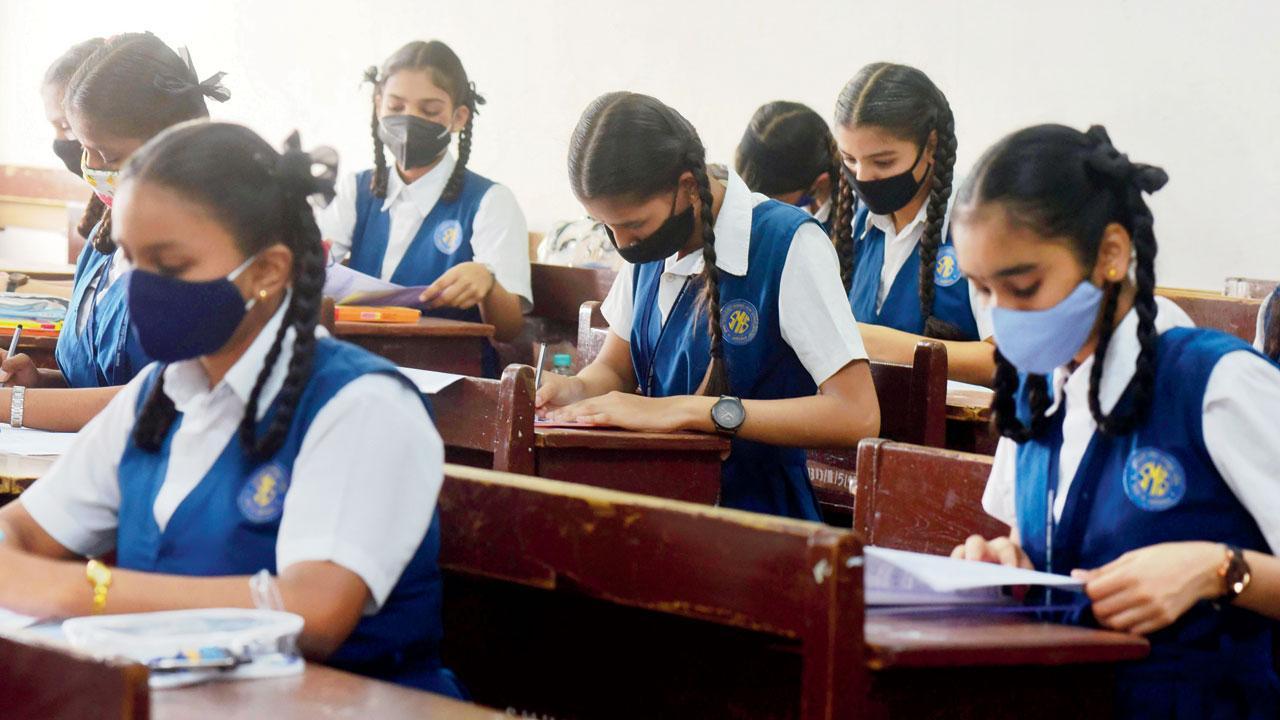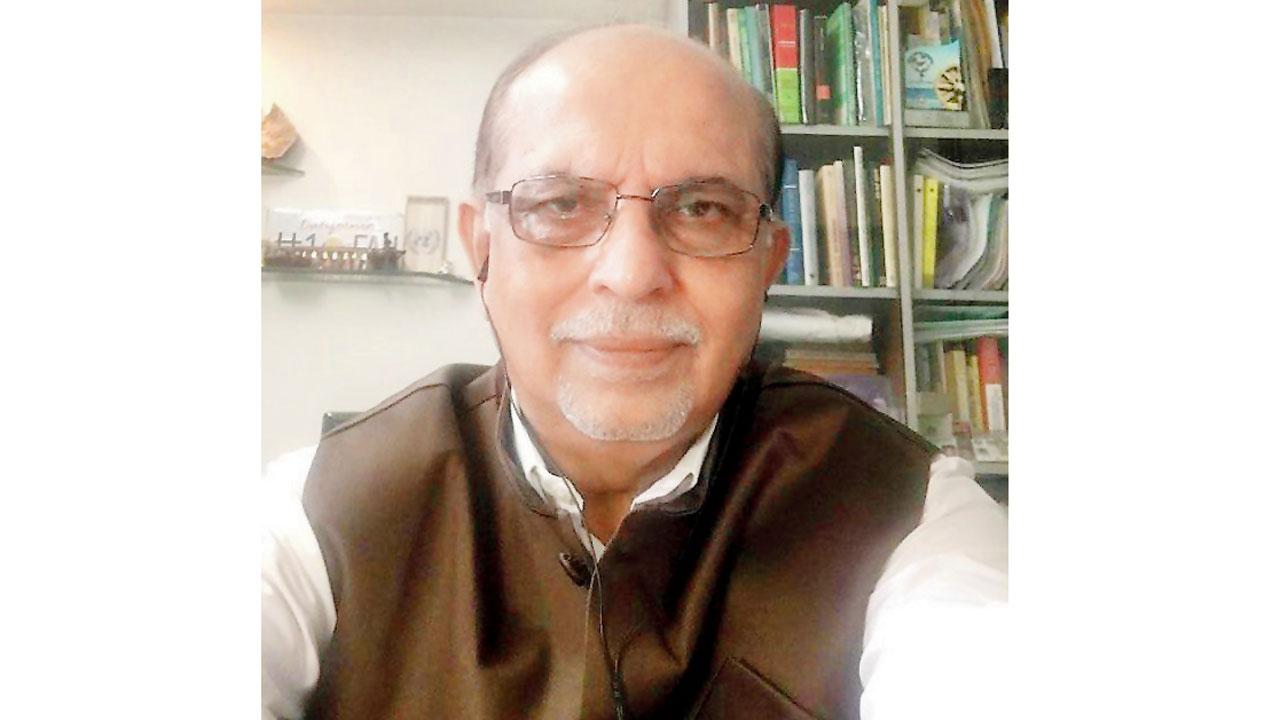With schools and colleges set to reopen soon, doctors say there is no need to worry as long as precautionary measures are taken

Students appear for SSC exams at Saraswati Mandir High School on March 15. Health experts have suggested wearing masks and frequently sanitising hands. File pic
As most schools and colleges are reopening from June 1, health experts have cautioned parents, schools and children to be on guard, in view of the increase in COVID-19 cases, alert for monkeypox as well as monsoon-related seasonal flu.
ADVERTISEMENT
“As schools begin to prepare for opening in early June, it’s time to remind students, teachers, parents, and support staff to start preparing for health safety at school. With communal living and students sharing classroom space, spreading colds and viruses is easy if everyone is not careful. These tips can help keep everyone from getting sick while COVID and other diseases such as monkeypox continue to linger around us,” said Dr Subhash Hira, professor of global health at University of Washington-Seattle and an expert on infectious diseases.
Dr Hira said, “Schools and parents should ensure that the students adhere to safety tips such as washing of hands, carrying and using sanitiser, wearing masks while in public and during recess. The most important one being not going to school if showing symptoms or feeling unwell. Apart from this, students should be allowed to carry mobile phones so that their parents can be called in case of emergency.”

Dr Subhash Hira, infectious disease expert
He suggested that weekly COVID testing of only students with symptoms and those around them would cut down the transmission risk of the virus and added that this method is working well in most developed countries as early detection helps take preventive steps.
Monkeypox virus
“Monkeypox cases are being reported in forgein countries. This family of viruses also causes smallpox and cowpox, so this is not completely new for us. It causes mild self-limiting illnesses. Symptoms are fever, headache, muscle aches, backache, swollen lymph nodes, chills, exhaustion. Within one to three days (sometimes longer) after the appearance of fever, the patient develops a rash, often beginning on the face then spreading to other parts of the body,” explained Dr Fazal Nabi, director of paediatrics, Jaslok Hospital.
“Lesions progress through the following stages before falling off: macules, papules, vesicles, Pustules, scabs. The illness typically lasts for 2−4 weeks. In recent times, the case fatality ratio has been around 3-6%. Transmission of monkeypox virus occurs when a person comes into contact with the virus from an animal, human, or materials contaminated with the virus and enters by respiratory route. As this disease has mild symptoms with no chronic sequelae and less mortality, additional vaccination with recent serotypes could be considered, though not necessary at this point of time,” said Dr Nabi.
Regular testing not required
“Even as the schools are reopening, there should not be mandatory weekly RT-PCR tests for students. There have been no such guidelines issued by WHO and it will impose unnecessary mental trauma and fear among children and parents,” said Dr Nabi.
He added, “We must understand that virulence and changing patterns of disease will demand change of guidelines and protocol. Time has come to encourage parents to send their children back to schools and boost their morale. Such illogical practices will unnecessarily cause discomfort and children being soft targets should not be mistargeted. Even healthcare workers do not undergo regular swab tests unless symptomatic.”
Dr Santosh Bansode, Head of the Department, Emergency Medicine, Wockhardt hospitals, Mumbai Central, said, “Instead of asking for an RT-PCR report or rapid antigen tests, we must train teachers about symptoms so that they can screen the students. Also, we must inform all children and their parents to not attend school physically if symptoms are there.”
Nutritious diet a must for kids
Dr Santosh Bansode from Wockhardt hospital lists out things to follow to avoid getting infections
1. Children who are eligible for the vaccine should take it
2. Parents should see to it that their children get an adequate nutritious diet and they don’t skip their breakfast and meals
3. Children should wear masks when going in crowded areas and they should avoid going too close to other people. Parents should teach them about it
4. Children should be educated about how diseases like COVID, monkeypox and seasonal flu spread
5. Any child having any flu symptoms or any rash over the body should not attend school till asymptomatic
6. Children should follow frequent hand hygiene
7. Schools should maintain a stress-free environment for children
8. Parents should distance themselves from children if they have any flu symptoms
9. Parents should take their vaccines.
 Subscribe today by clicking the link and stay updated with the latest news!" Click here!
Subscribe today by clicking the link and stay updated with the latest news!" Click here!







